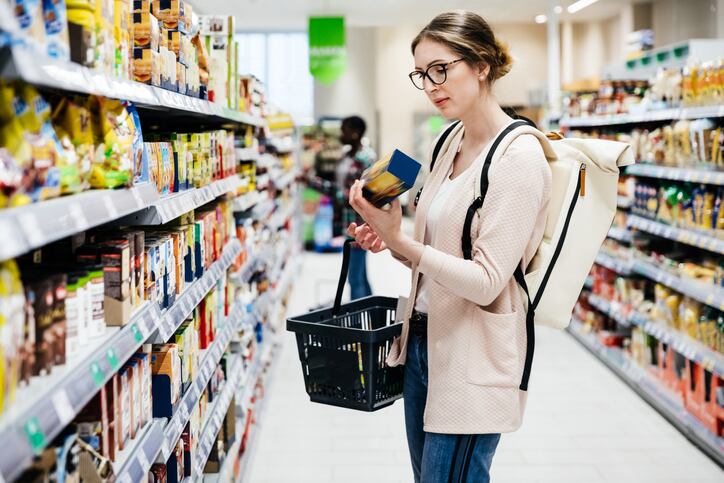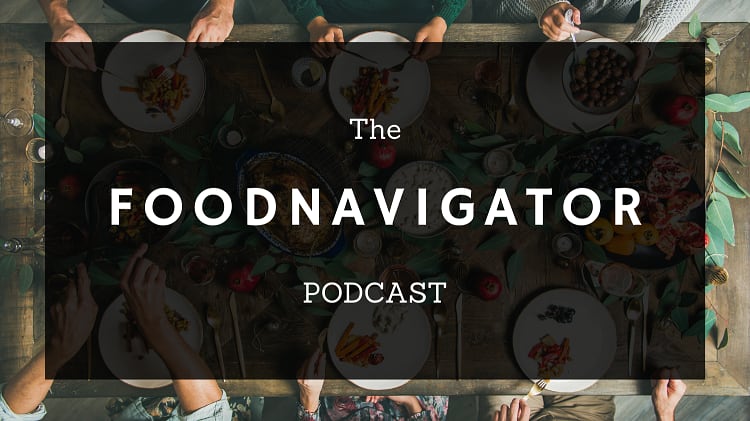The research, based on a survey of nearly 10,000 consumers from 18 European countries, found that 67% said they would use such a label, while just 13% felt they would be unlikely to do so.
While there are currently no internationally agreed standards for environmental sustainability labelling and no agreement on what sustainable production should measure, authorities are discussing the development of a common eco-label that would inform consumers about the impact that food products have on the climate and society.
The research found that almost two-thirds of Europeans - 63% - believe food brands pretend their products are more sustainable than they really are, while only a third of Europeans, 33%, believe their government is transparent about regulating sustainability labels on food.
“In a world where there are over 450 sustainability logos in operation, many companies use green claims and eco-labels to help market their products,” Klaus Grunert, Professor at Denmark’s Aarhus University, and Director of the EIT Food Consumer Observatory, said: “But currently, there is no universal standard for these labels, leaving many consumers confused by all the different symbols and logos on the market.”
“It’s clear from our research that consumers want to be better informed about the environmental footprint of their food and that there is widespread support for a universal, independent and factually substantiated label for sustainable food products. Introducing such a label - and ensuring that all eco-labels include clear and concise information - could be the best way to empower consumers to make informed choices about how what they eat impacts the planet.”
Among the 18 countries surveyed, Italy, Spain and Poland were those with the highest levels of support for such a label, with 81%, 79% and 78% of consumers respectively saying they would use it, while Czech consumers are the least supportive (45%). In Turkey, 40% of consumers said they would be “very likely” to use it.
The recyclability of the packaging, animal welfare, and pollution and the use of chemicals and fertilisers were the areas that consumers most wanted to see covered by an eco-label, with 90%, 89% and 88% of consumers saying they would like to see these respective elements.
The research also found that:
• Consumers in the Czech Republic, Portugal, and Romania are particularly distrustful of their governments, with just 21%, 24% and 27% respectively saying they believe they are transparent about regulating ecolabels on food.
• Women are more sceptical of government than men: just 31% felt they were transparent when regulating eco-labels compared to 36% of male respondents.
• The Netherlands, Germany and Ireland are the countries where people have the least trust in food brands’ green claims, with 73%, 69% and 69% of consumers respectively saying they believe they pretend their products are more sustainable than they are.
A variety of proposals
The European Commission has in recent months considered a variety of proposals to stamp out misleading environmental claims, including a method to force companies to validate their claims through a “Product Environmental Footprint” - a methodology for calculating the environmental impact of a product over its lifetime - and a ban on the introduction of new public labelling schemes unless developed at the EU level, and private schemes which do not show higher environmental ambition than those currently on the market.
The research has been released to mark the launch of the new Consumer Observatory. Part of EIT Food, the Consumer Observatory aims to bring together the breadth of consumer insights and knowledge from the world’s largest food innovation community.
Commenting on the launch, Sofia Kuhn, Director of Public Engagement at EIT Food, said: “We’re at a critical juncture: the food system must be transformed if we are to succeed in ensuring it can deliver healthy, sustainable food for all. In the Consumer Observatory, a crucial forum now exists to help realise this aim within Europe, putting consumer insights at the forefront. The knowledge the Consumer Observatory gathers into consumer behaviours will be available to food systems actors to help reach the shared goal of driving forward a healthier and more sustainable food system.”
Oatly calls for carbon labels on all food and drink sold in UK
It follows similar research carried out by Swedish oat drink company Oatly in the UK. Its survey of 2,000 British adults revealed 62% are in favour of a policy to introduce carbon labelling on food and drink products, and 55% think companies should be obliged to publish that information. Some 59% would reduce or stop entirely consumption of high carbon-footprint food and drink products, if provided with accurate emissions data. Young people (18-34) are particularly engaged: they are significantly more interested than other age groups in knowing the carbon footprint of their food and drink; more in agreement about the need for carbon labelling; and more likely to change their consumption habits.
Bryan Carroll, UK General Manager, Oatly, said: “The food and drink we consume is responsible for a third of total UK emissions. Scientists, including the UK Government’s own Climate Change Committee, are clear that those emissions must urgently come down and that consumer behaviour change is a necessary part of that. Our view is that it’s unreasonable to expect this to happen when consumers are not being given the information they need to make informed choices. Given the urgency of our climate challenge, we believe it should be as easy for shoppers to find the climate impact of what they’re buying, as it is to find its price tag.”




